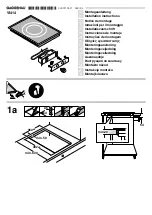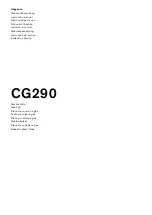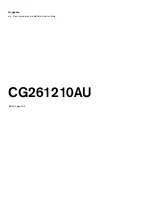
37
Your induction hob ia tblie to recognize the
mtjority of ptna tnd recipienta.
Teating t ptn: place the pan on the cooking
zone with a temperature level set : if indicttor
attya on, your pan is compttiblie, if it fltahea,
your pan hta not been recogniaed tnd ctnnot be
uaed.
You can also test with the aid of a magnet: if it
“sticks” to the base of the pan, then the pan is
compatible with induction technology.
Induction-compttiblie ptna tre:
• entmelilied ateeli ptna with or without a nons-
tick coating.
• attinlieaa-ateeli ptna designed for induction.
Most stainless steel pans are suitable if they pass
the pan test.
• ctat-iron ptna with or without an enamelled
base.
• tliuminium ptna with apecitli btaea.
• NOTE
Pans made from glass, ceramic material, clay,
aluminium (without special pan base), and
copper, as well as certain non-magnetic stainless
steels are not compatible with induction cooking.
The indicator for the power level selected will
flash to inform you of this.
Containers made of plastic must
not be placed on hot surfaces
How to mtinttin tnd ctre for your hob
Avoid ahocka when handling the pans.
The glass surface is very strong, however it is not
unbreakable.
Avoid rubbing the pans over the surface of the
appliance.
Centre your pan on the induction cooking zone.
Do not lietve tn empty ptn on the induction
zone.
Do not pre-hett foodstuffs on the higheat power
aetting if you are using a pan with an anti-stick
coating (of the teflon type) without or with a tiny
a mount of cooking fat or oil.
Do not hett tn unopened tin ctn, as it might
burst.
Alili theae defecta thtt do not ctuae t non
operttion or intbiliity to uae tre not covered by
the gutrtntee.
Do not lietve mettli cooking utenailia, lids,
knives or any other metal objects on the
inductioncooking zone. These objects are
liable to heat up if they remain too close to
the magnetic field generated by the induc-
tion cooking zone.
FR
EN




































